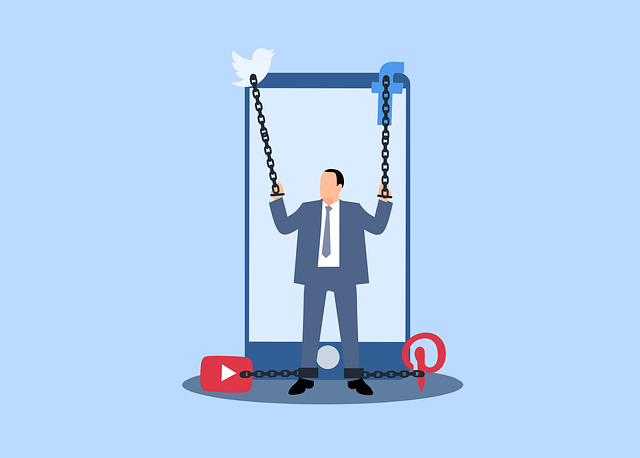Denver Pain Management Therapy introduces the Resourceful Living Model (RFM), a holistic approach to chronic pain management that emphasizes resilience building and coping strategy education. By combining tailored communication, stress management techniques, empathy-fostering strategies, and mental health education, RFM empowers individuals with mental fortitude to manage pain and challenges effectively. Personalized exercises, such as gentle yoga or mindfulness, cater to diverse physical and mental health needs, preventing burnout among both patients and healthcare providers. Success is measured through qualitative and quantitative assessments, focusing on long-term resilience and well-being, ensuring Denver Pain Management Therapy provides comprehensive care that resonates with its clients.
In the realm of Denver pain management therapy, incorporating Resilient Factor Model (RFM) exercises has emerged as a game-changer. This article delves into the transformative power of RFM in mitigating chronic pain, highlighting its role in enhancing resilience. We explore the impact of tailored resilience-building exercises on patients’ well-being and their integration into comprehensive Denver pain management strategies. Learn how customization and measurement contribute to long-term success, offering a vibrant tapestry of solutions for effective pain relief and improved quality of life.
- Understanding RFM and its Role in Pain Management
- The Impact of Resilience Building Exercises
- Integrating Exercises into Denver Pain Management Therapy
- Customizing Programs for Individual Needs
- Measuring Success and Long-Term Resilience
Understanding RFM and its Role in Pain Management

At its core, RFM (Resourceful Living Model) is a framework designed to enhance individuals’ ability to navigate and overcome life’s challenges, including chronic pain. This model emphasizes that managing pain effectively isn’t just about treating symptoms; it’s about empowering individuals with skills to live fulfilling lives despite their condition. By focusing on resilience, individuals can develop coping mechanisms that not only alleviate physical discomfort but also strengthen mental and emotional well-being.
In the context of Denver Pain Management Therapy, RFM integrates various communication strategies and stress management techniques tailored to individual needs. This holistic approach goes beyond medication or surgery by fostering a sense of self-efficacy and control. Through structured programs and supportive environments, Mental Health Professionals can facilitate risk management planning that equips individuals with tools to confront pain triggers, regulate emotions, and engage in meaningful activities—all vital components for building lasting resilience.
The Impact of Resilience Building Exercises

Resilience building exercises have a profound impact on individuals’ ability to cope with life’s challenges and stress. These exercises, often integrated into Denver Pain Management Therapy, equip people with essential tools to navigate difficult situations. By fostering mental fortitude, they enhance one’s capacity to withstand and recover from adverse events, thus promoting overall well-being. The benefits extend beyond emotional resilience; they can significantly reduce the risk of burnout, a common issue faced by many professionals, including mental health practitioners.
Incorporating these exercises into therapy sessions can aid in depression prevention and support individuals in developing healthy coping mechanisms. Additionally, a thorough risk assessment for mental health professionals becomes more relevant as these practices contribute to better self-care and stress management. This not only improves service providers’ resilience but also ensures they can offer optimal care to their clients over time, effectively preventing burnout and its associated negative impacts on both personal and professional lives.
Integrating Exercises into Denver Pain Management Therapy

Incorporating resilience-building exercises into Denver Pain Management Therapy offers a holistic approach to patient care. These exercises aren’t just about physical rehabilitation; they’re designed to empower individuals with the mental fortitude needed to navigate chronic pain effectively. By integrating techniques that foster empathy and mental health education, therapists in Denver can create a supportive environment where patients learn to manage their symptoms and improve overall well-being.
Beyond traditional therapy sessions, considering innovative formats like Mental Wellness Podcast Series Production can enhance engagement. These podcasts can provide valuable insights into managing pain, share success stories, and offer practical tips—all tailored to the unique challenges faced by individuals in Denver’s diverse community. Such dynamic content not only complements therapy but also encourages ongoing learning and support, contributing to a more comprehensive and impactful Denver Pain Management Therapy experience.
Customizing Programs for Individual Needs

When implementing resilience-building exercises, customizing programs to cater to individual needs is paramount, especially in a diverse setting like Denver Pain Management Therapy. Every patient’s journey toward emotional healing and well-being is unique; thus, tailoring interventions ensures optimal effectiveness. Healthcare providers can adapt traditional strategies by incorporating personalized elements, such as adjusting the intensity or type of exercise based on physical limitations or mental health conditions.
For instance, for patients suffering from chronic pain, gentle yoga or mindfulness practices might be more suitable than high-impact activities. Conversely, those battling burnout could benefit from stress-reduction techniques and emotional support groups. By blending various Emotional Healing Processes and Emotional Well-being Promotion Techniques, healthcare professionals can offer comprehensive care that addresses both the physical and psychological aspects of resilience, ultimately enhancing Burnout Prevention Strategies for Healthcare Providers.
Measuring Success and Long-Term Resilience

Measuring Success and Long-Term Resilience play a pivotal role in Denver Pain Management Therapy. The effectiveness of RFM (Resilience Building Exercises) implementation is best assessed through qualitative and quantitative metrics that capture both immediate and sustained improvements. Short-term gains, such as reduced stress levels and enhanced coping mechanisms, serve as indicators of successful interventions. However, the true testament to RFM’s efficacy lies in its long-term impact on burnout prevention strategies for healthcare providers. By fostering emotional healing processes, these exercises enable professionals to better manage demanding work environments, thereby reducing the risk of professional exhaustion.
Through regular follow-ups and ongoing assessments, therapists can gauge the longevity of learned resilience. This includes tracking participants’ ability to navigate challenging situations, maintain improved stress reduction methods, and adapt positive emotional responses over time. Such evaluations are crucial in identifying areas for improvement within the RFM program, ensuring its continuous refinement, and ultimately contributing to better patient outcomes in Denver Pain Management Therapy.
Implementing RFM (Resilience, Flexibility, and Mobility) exercises as part of Denver pain management therapy has shown significant promise in enhancing patients’ resilience and long-term coping mechanisms. By customizing programs to individual needs, healthcare providers can offer tailored solutions that address both physical and mental aspects of pain. This integrated approach not only alleviates symptoms but also empowers individuals to navigate life’s challenges with greater flexibility and strength. As research continues to grow, Denver pain management clinics can further refine these practices, ensuring patients receive the most effective and holistic care available.












